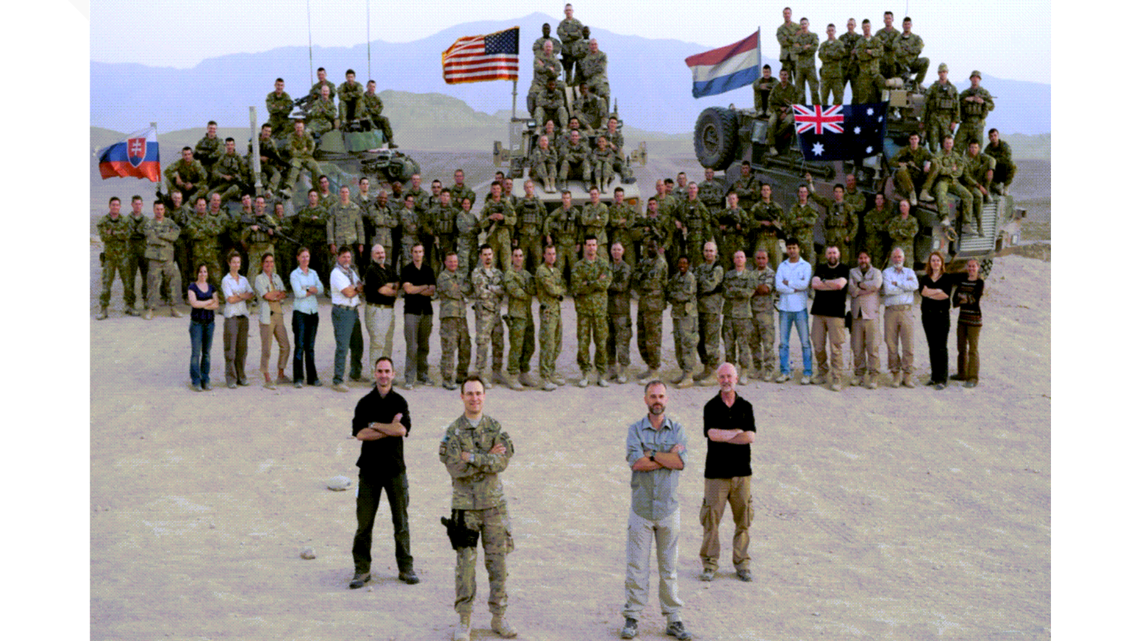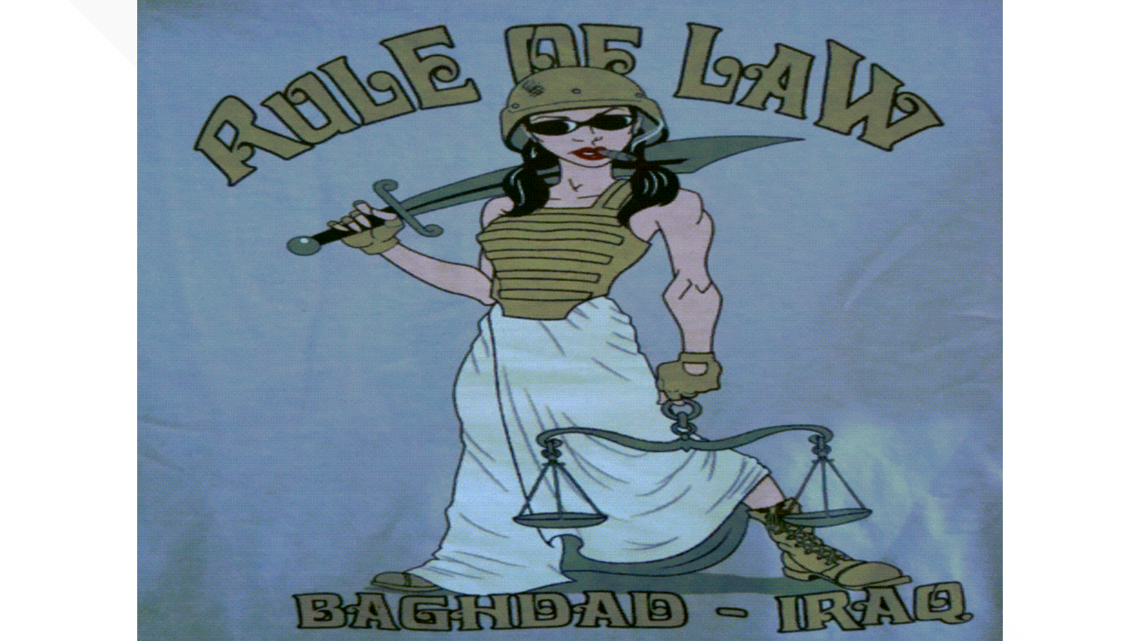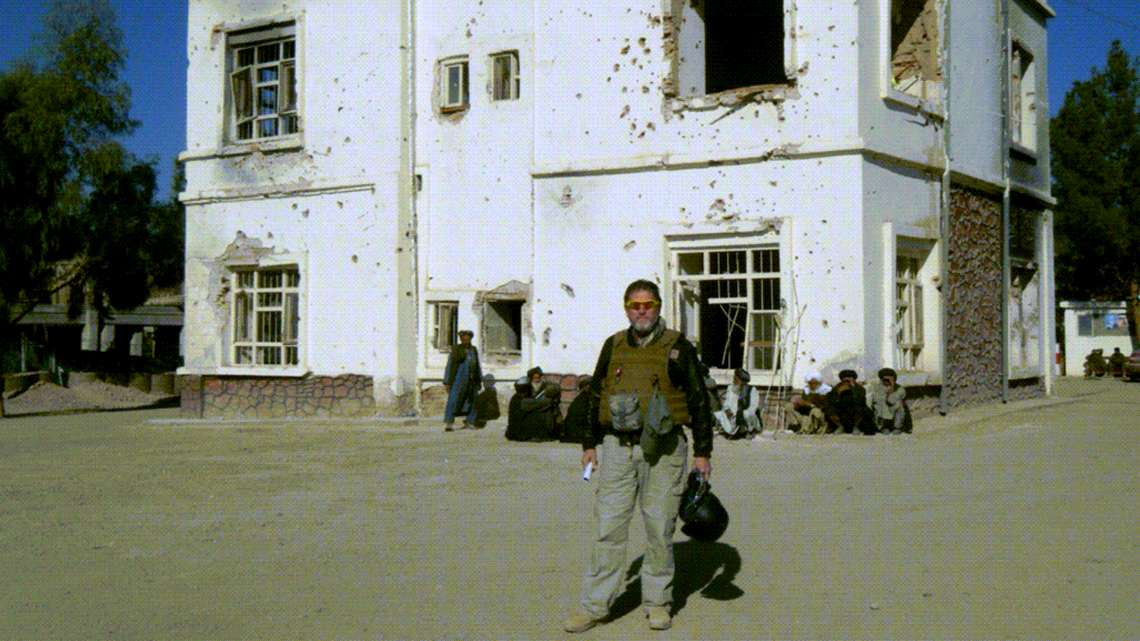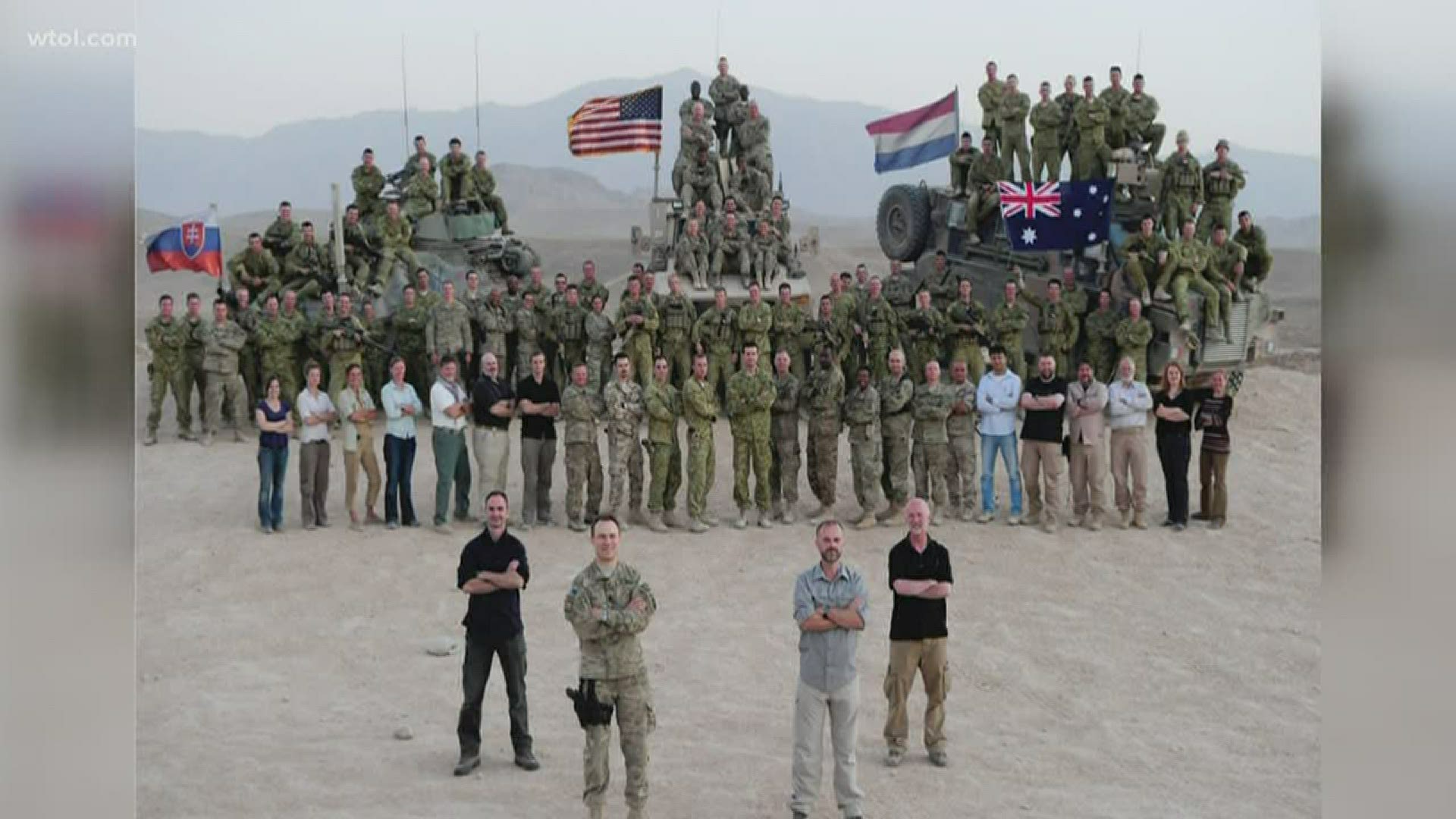TOLEDO, Ohio — During the week, you can find defense attorney Jeffrey Crowther in the Lucas County Common Pleas Court.
But several years ago, you could find him in Iraq and Afghanistan, building police forces.
"I was a rule of law adviser in Iraq and Afghanistan. In Iraq, my job was to build civil society - police, prosecutor, courts," he says.
In building that infrastructure, he worked with police trainers from Europe. He says many of those trainers didn't understand many American police tactics. He said in some cities, police are seen almost as occupying forces.
Crowther says part of that mentality is that many departments heavily recruit former military members. He points to military-style rankings that police commanders carry - sergeant, lieutenant, captain - as evidence of the mindset of officers. A police chief's collar is adorned with four stars, like a general.
In Europe, even Australia, officers don't carry those titles and, Crowther says, are viewed as partners in the community who ensure life runs smoothly.


In Minneapolis, officers are seen kneeling on George Floyd, who later died. Police were apparently trying to question Floyd about passing a counterfeit bill.
"The Dutch, the Danes, they wouldn't have done it that way," Crowther says of the use of force. "He was in handcuffs. They would have just let him be dumb."
What they tried to build in Iraq and Afghanistan, modeled after Europe, was the idea of community policing.
"Community policing says how do we talk him into the car? Law enforcement says I'm going to make you get into the car," he says.
Crowther says that, even in Iraq and Afghanistan, tribal chiefs recognized that arresting a family member affects not only that individual but the entire family. The person accused of the crime may be needed to earn money or to help with crops. In America, even a relatively minor, nonviolent offenses can take a valuable family away for months at a time. Crowther says many community members believe they are being hunted by an occupying force, strong-armed tactics that alienate the populace.


It is the opposite approach that his European colleagues told him about. He says those forces try to integrate into communities, building trust and being seen as partners who help the community run smoothly.
"As you develop that trust, you will develop that intelligence because the community doesn't think you are just hunting down their men and women just to get arrest or conviction rate up. A mom or grandmother doesn't want a drug dealer around."
In many cities across the country, including Toledo, violence broke out during protests over George Floyd's death. In Crowther's view, it's because police in many communities are viewed as outsiders, forces meant to impose their will over residents.
"It's supposed to be we the people, not executive branch enforcing the law. It's the difference between law enforcement and community policing."
He points to Camden, N.J., as an example of how to effectively deal with protesters and community anger.
"Their police didn't even suit up. The chief marched with them. That's showing, 'We are your police. You are not our civilians.'"
He says building that trust and trying to help citizens, rather than punish them, is the key to policing.
"We reward the arrest. We have to find a way to reward the restoration to where people feel comfortable calling the police, where it's not going to be bringing the enemy into my neighborhood."



